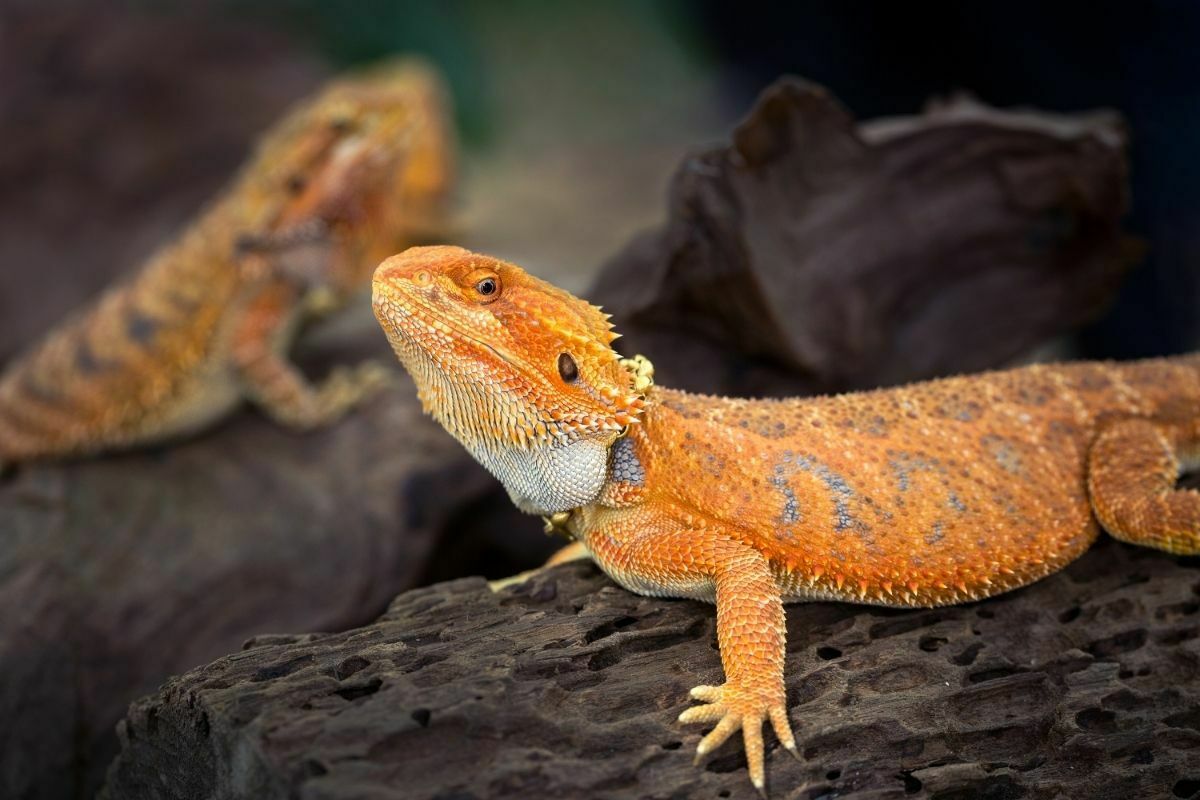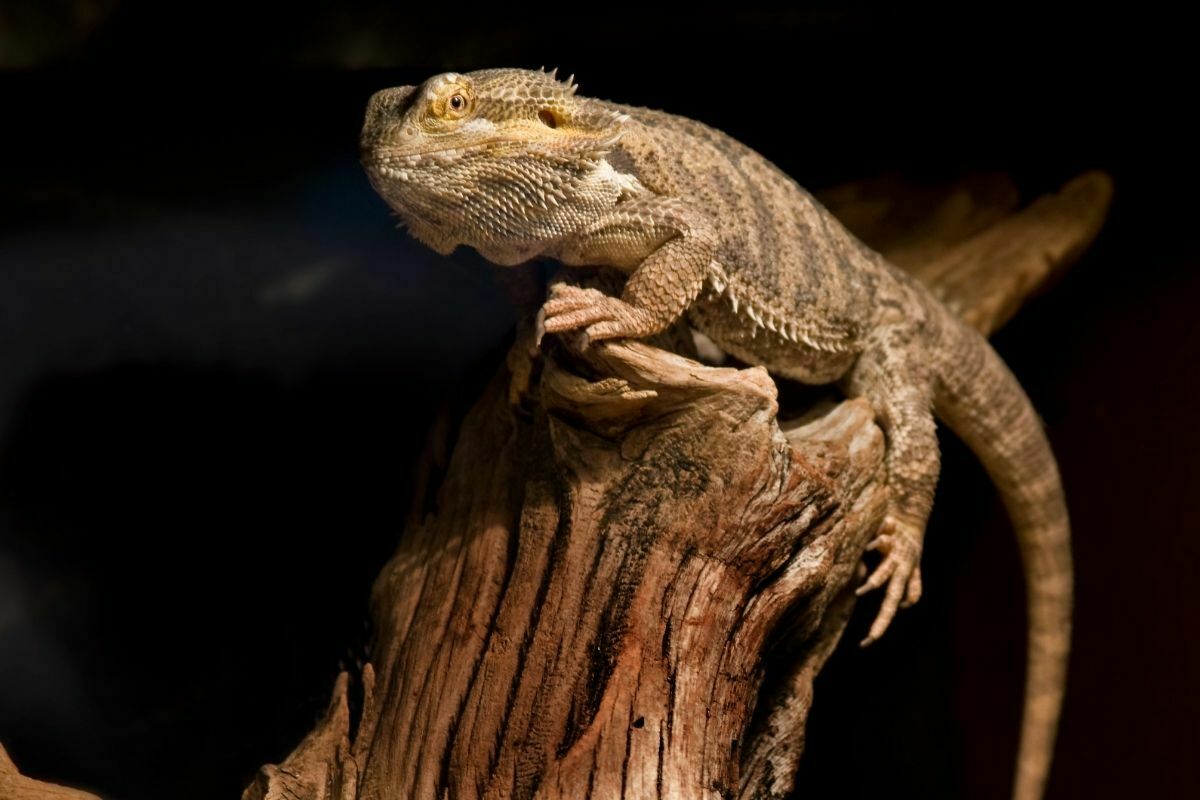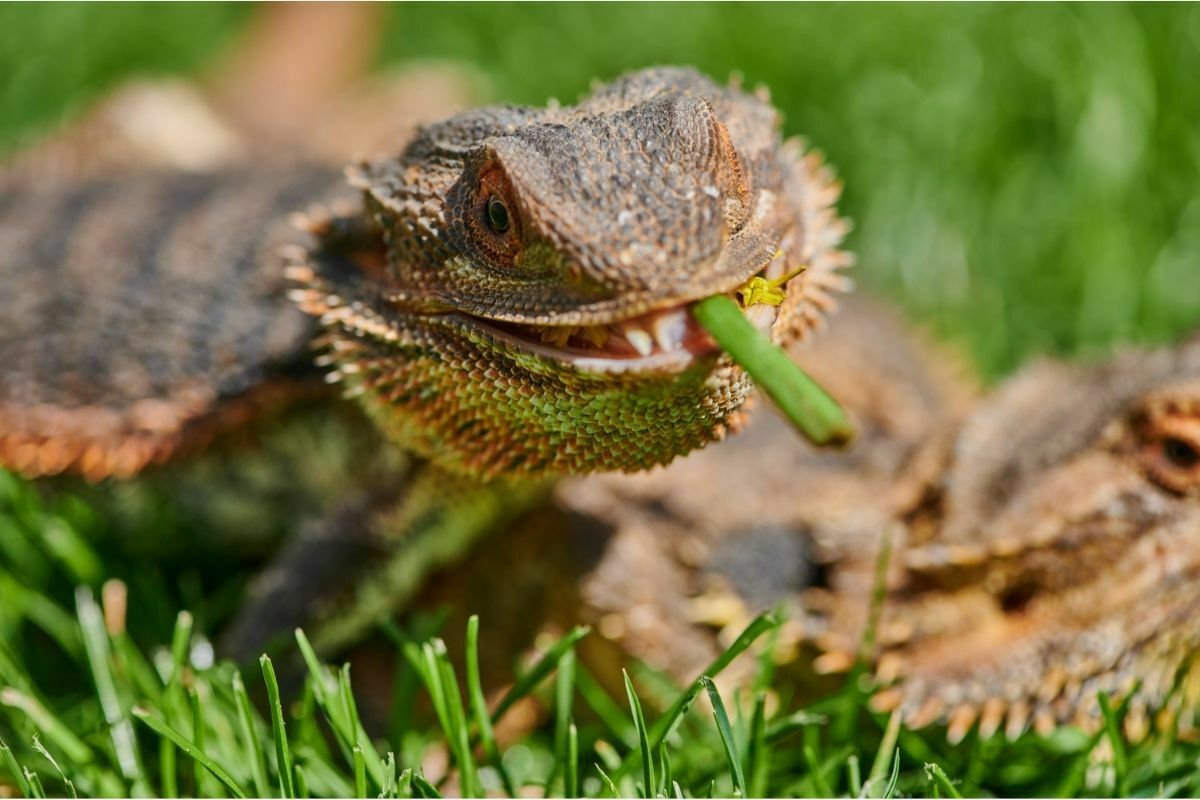Bearded dragons are one of the most unique species of pets that you can have. These reptiles have been given this name due to their beard-like throats and their visual similarities to dragons.
They are also known as bearded lizards or dragon lizards.

Despite their rarity, bearded dragons are becoming an increasingly popular pet for many reasons. One reason is that they are extremely easy to care for.
Unlike other types of reptiles, bearded dragons do not require a lot of attention when it comes to feeding them. Their diet consists mainly of insects, rodents, and some plants.
These reptiles normally maintain a healthy appetite. However, like other creatures, they can lose this appetite. When this happens, your immediate response as a pet owner can be to panic.
We encourage you to remain calm. Instead, you should try to find the cause of the problem. Doing so can allow you to solve it.
If this does happen, here are 5 reasons why your bearded dragon may have gone off its food.
The Bearded Dragon Is Intimidated
Often, it is not recommended that you put two or more bearded dragons in the same enclosure. Though some of these creatures can live alongside each other harmoniously, others can be territorial.
This will only serve to intimidate the animals and make them feel threatened.
The dominant reptile may steal all the food in the enclosure, preventing intimidated bearded dragons from accessing food. This can cause a seeming loss of appetite. The lizard may feel insecure about eating any food.
The Solution
Thankfully, this problem is quite simple to solve. You can merely get another cage or enclosure to separate the bearded dragons.
Alternatively, you can purchase the maximum cage size, so both creatures have sufficient space. You can place the food at alternative ends of the enclosure to ensure that both dragons can access it.
If this doesn’t work, you can make a wall in the enclosure to give them separate space. This is often much more affordable than investing in two separate cages.
You can make these walls from a number of materials, such as stones.
The Bearded Dragon Has Been Sick
Your bearded dragon may have become ill. It could be suffering from an infection, digestive problems, or even a respiratory illness.
If you notice signs of sickness, you must take action immediately. Otherwise, you risk worsening the situation.
The loss of appetite is often one of the main signs that your bearded dragon is unwell. However, other signs include continued shaking and unusual wheezing noises.
The Solution
In any case, if your lizard is sick, it is best to get veterinary advice. They will be able to diagnose the issue and give the correct medicine.
For instance, you can treat your bearded dragon with antibiotics if necessary. You can administer these medications orally or by injection.
Brumation
Brumation is a common behavior among reptiles. Brumation occurs in winter. During the start of this season, bearded dragons will become sluggish and inactive.
This is comparable to hibernation, which is carried out by mammals.
During brumation, bearded dragons will consume minimal food. This is because their metabolism slows down. As a result, they do not need to eat as much. This allows them to conserve energy for when spring arrives.
You should bear in mind that brumation is fairly rare among bearded dragons that are kept as pets. This is because they will not be exposed to the harsh conditions of winter.
That is not to say that it never happens. If your pet stops eating food during winter, it could be a result of brumation. This will be especially true if you live in a cold house or if the cage is chilly.

The Solution
If your bearded dragon is undergoing brumation, there is very little that you can do. They should be left to their own devices.
If you are worried that this is not the reason why your bearded dragon has shown a lack of appetite, you can consult with a vet. They will be able to confirm whether this is the cause.
You could help your bearded dragon through this process by reducing light. You may also want to fully immerse them in wintry conditions by reducing the temperature of their tank. If you do this, be sure to provide a warm area for the lizard.
The Tank Temperature Is Too Cold
In terms of their natural habitat, bearded dragons are used to warm desert conditions. In captivity, however, this is rarely the case. Most bearded dragons are kept in tanks that are set at room temperature.
If the temperatures are too low, your bearded dragon may stop eating. This is because they cannot regulate their body temperature properly.
Furthermore, they could have difficulty digesting food. If the bearded dragon is exposed to low temperatures all the time, it could become seriously ill.
The Solution
The remedy for this problem is quite simple: you merely need to raise the temperature of the tank. It does not matter how high the temperature goes.
Just make sure that it is comfortable for your bearded dragon. In the daytime, the temperature should be at least 90 °F. At night, temperatures should be cooler.
You do not need to do this for the entire tank. However, you may want to create a hotspot for your reptile with a basking light.
This will allow your bearded dragon to receive the heat it requires. However, you should also have a cool spot available for your dragon to relax in.
It’s Vitamin Deficient
Vitamin deficiencies occur when an animal’s diet lacks certain vitamins and minerals. These include B-complex vitamins and vitamin D. Like humans, every animal needs to get its fair share of vitamins and minerals.
The best way to ensure that your bearded dragon gets enough vitamins is to feed him a balanced diet.
Vitamin deficiency is one of the most common problems faced by bearded dragons. If you feed them mostly rodents or insects, your pet dragon will not receive a lot of nutrients. Instead, you must also feed it plants.
The Solution
To combat vitamin deficiency, you should start feeding your bearded dragon a diet rich in vegetables.
This should be formed mostly by leafy greens. You should also add some fruits like apples and bananas.
On the other hand, you should refrain from giving them fruit daily because this can negatively increase their sugar intake.
As long as you feed your bearded dragon these foods regularly, you should see improvements in his health.
It’s Overly Stressed
Stress is another important factor that causes animals to lose interest in eating. Stress is caused by various things including changes in the environment, physical injury, and even mental illness.
Bearded dragons are no exception to this rule. Their stress levels can rise if they are placed in a new environment.
They may also feel stressed if they are separated from their family members. Other causes of stress include:
- Being fed incorrectly
- Not being given enough space
- Having to wait for food
- Lack of exercise
- Poor lighting
- Disease

The Solution
The first step you should take is to have a look at the tank. This is often one of these creatures’ most common causes of stress.
Bearded dragons should have plenty of space. They should also have access to both shade and light.
Moreover, you should provide them with toys and a hiding place. If you put too many bearded dragons in the same tank, you will likely witness aggression between them, which could cause stress.
If you find that your bearded dragon is exhibiting signs of stress, you should try to reduce the number of stressors it faces.
Though it can be difficult to ascertain what the cause of this stress is, you should spend some time investigating it.
It Has A Parasite
Parasites are organisms that live on or inside another organism. Mist parasites are harmful. When you keep reptiles as pets, you may encounter parasites.
Some common parasites include pinworms, ticks, and mites. A bearded dragon may stop eating for a couple of days in response to these parasites.
You can tell if your pet has parasites because you might be able to see them moving on the skin of the bearded dragon.
The Solution
If you suspect that your bearded dragon has been infected with a parasite, you should treat it immediately.
There are several ways to treat your bearded dragon. By taking it to a professional vet, you can get the correct treatment and advice for your pet.
Frequently Asked Questions
How Do I Know If My Bearded Dragon Is Sick?
The most obvious sign of sickness is when your bearded dragon stops eating. However, there are other symptoms that you should watch out for. These include:
– Losing weight
– Continued shaking
– Swollen eyes
– Trouble breathing
– Feeling weak
Can Bearded Dragons Be Dehydrated?
Yes, they can. The best way to prevent dehydration in your bearded dragon is to ensure that it gets plenty of water.
Ensure that you give it access to fresh water every day. Also, make certain that you change the water frequently.
Final Thoughts
Bearded dragons are fascinating animals. They are easy to care for and maintain. Bearded dragons are usually friendly toward humans. They enjoy interacting with people.
Overall, this makes them perfect pets. However, you may be concerned when your bearded dragon stops eating.
With this guide, we have covered the most common reasons for this occurring. Hopefully, this should enable you to restore your pet’s diet so that they are as good as new.
